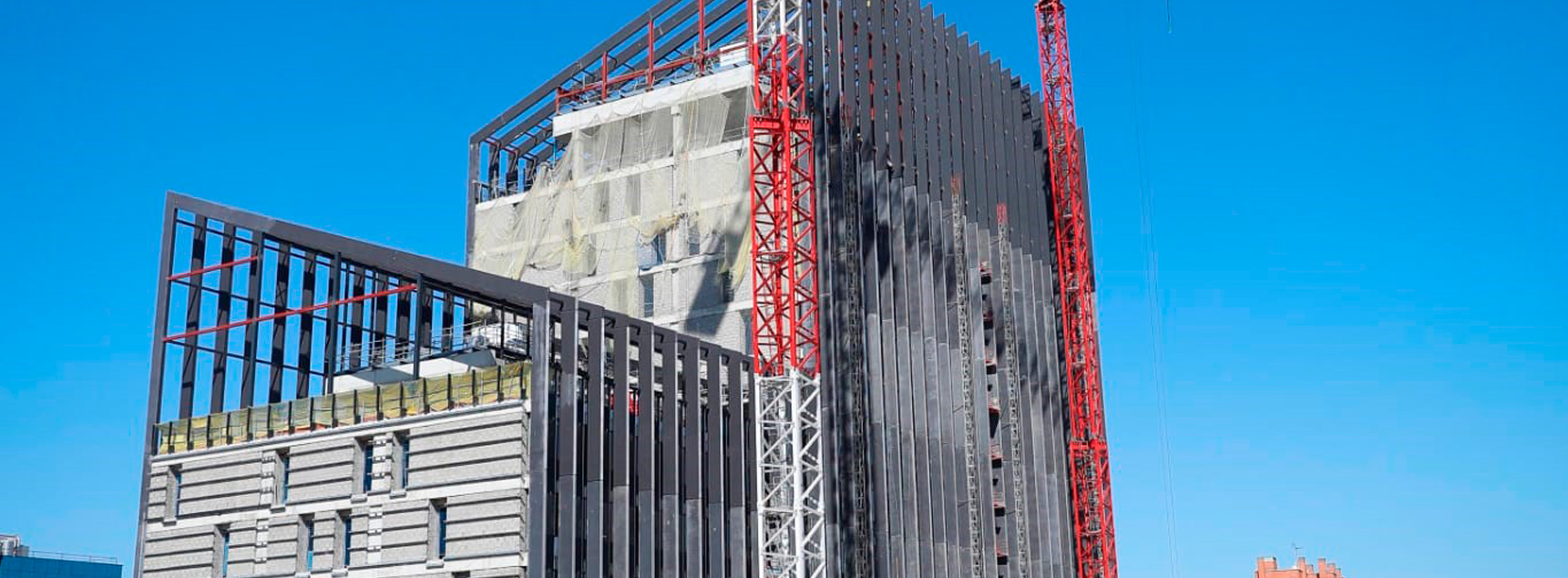Interview with Teresa Sancho, Head of Internal Communication, Metro de Madrid.
1. How did the need to update the Metro de Madrid workspace arise?
The idea for the project stemmed from a practical need, given that our many offices had become too small and obsolete. Plus, there was a real estate opportunity to build a new headquarters. To get an idea of the size, of the almost 7,000 Metro de Madrid employees, 2,000 are in offices scattered across seven different sites located are far from one another. All of this led to inefficient ways of working, lots of siloed work, a lack of digitalization, excess bureaucracy, and different cultures in each branch. So the project emerged as an opportunity to build a new headquarters in order to unify and centralize the staff, and to lower costs.
2. How has the pandemic affected the way you work, and what changes has it brought about, if any, in the conception of your workspace? What has changed compared to before COVID-19 in terms of the offices?
The project has evolved and changed radically, turning into a golden opportunity for us to not only redefine the spaces and physical environment but also change the organization’s model and ways of working, to change its culture. Although it is true that the physical environment is not the only factor that defines a corporate culture, it does contribute to it and is part of daily life in a company. In our case, this was much more pronounced than in other companies due to our age and the fact that we’re a public Enterprise.
For example, in many companies, having an office is part of an employee’s status and professional rank, and this is very strongly anchored in our culture. That’s why getting rid of hundreds of offices and shifting to open, unassigned, collaborative spaces is more than just an aesthetic or physical change. It runs much deeper. That’s why it’s more than office design for us―although it is that, too― but instead a project to change our culture, to become a more horizontal, approachable company with more collaboration and communication; a company that focuses on innovation, technology, and sustainability.
We are taking advantage of the physical and aesthetic change to make a profound change in the work culture. It’s a huge challenge!
Metro de Madrid thought the sky was the limit when designing our new headquarters, where we could all be together and work in a different way.
3. What does flexibility mean for a company like Metro de Madrid?
Because of our idiosyncracies, resistance to change in our organization is considerable.
Our staff is comprised of employees with an average seniority of 30 to 35 years, an average age of 48, and a system where you clock in and out, even for breaks. Without a doubt, COVID-19 has helped us by serving as a point of departure for this change we have to make. Without the pandemic, we wouldn’t have been able to do it as quickly; we wouldn’t have been able to create the current narratives on flexibility and culture change.
4. What do you think the future of in-person and remote work will be once the health situation is back to normal?
Our staff is comprised of employees with an average seniority of 30 to 35 years, an average age of 48, and a system where you clock in and out, even for breaks. Without a doubt, COVID-19 has helped us by serving as a point of departure for this change we have to make. Without the pandemic, we wouldn’t have been able to do it as quickly; we wouldn’t have been able to create the current narratives on flexibility and culture change.
5. In your project to transform the spaces, and in this entire phase we are going through, have you learned anything that surprised you that you’d like to share with our readers?
Managing the emotional part has been a major challenge during the pandemic. We have also learned how important it is to get the people affected by the change involved in it; in this regard, creating groups of ambassadors to share everything with excitement and responsibility is essential.
